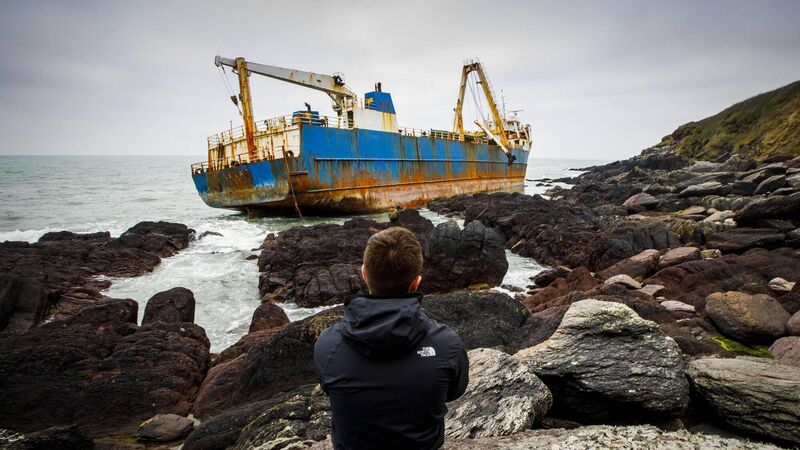Cork's grounded ghostship: 'There will be hell to pay if we have a marine disaster'

A local takes a break from his walk to inspect the cargo ship MV Alta on rocks near the village of Ballycotton, Co Cork. Pictures: Oisín Keniry
The State has learned little about how to deal effectively with marine wreck incidents since the Kowloon Bridge disaster over three decades ago and the Irish coast remains exposed to a potential marine disaster, a leading international maritime expert has warned.
Michael Kingston, a global expert in maritime law, said the fact that the wreck of the MV Alta ghostship remains stuck fast on the Cork coast almost two years since it ran aground, proves how inadequate the official State's response to such incidents is.











